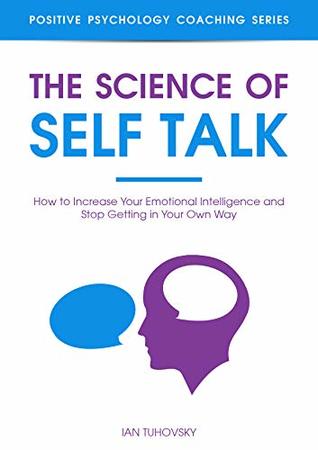More on this book
Community
Kindle Notes & Highlights
by
Ian Tuhovsky
Spend some time with yourself, noticing your internal speech. It’s best to do this while you’re not very engaged with something. So put down the ebook, pocket your devices, and go for a walk in the park. Go sit on the porch or balcony. Just be by yourself for a time and listen to your inner dialogue. Don’t try to change it; just relax and listen for now.
Pay attention to what your inner speech is saying to you as you work, as you hang out with friends, as you wash the dishes, as you do anything. You’ll get an idea of what your self-talk patterns are in various situations.
So a constructive kind of self-talk would be any kind of self-talk that leads you in the right direction, toward your goals and toward becoming a better you. Dysfunctional self-talk would be any self-talk that bogs you down in unproductive, stale, repetitive patterns, especially if those patterns make you feel miserable and helpless.
Whenever you find yourself engaging in negative self-talk like “I’m always late” or “I suck,” write down your thoughts in the dysfunctional list. And whenever you find yourself engaging in positive self-talk (e.g., “I can do this” or “I can nail this presentation”), write down those thoughts, too.
Negative self-talk is especially associated with higher levels of stress and poor emotional regulation when faced with stress.
Nowadays, the threats or stressors in our environment are numerous and constant. You have the possibilities of losing a job, not getting that raise, losing to a competitor, failing a class, losing with investments, committing a humiliating faux pas in a social setting, or being stigmatized by your peers for some mistake.
There are many other cognitive distortions of this kind, such as jumping to conclusions and so on. They’re a key tool in clinical paradigms such as cognitive-behavioral therapy. If you’re interested in learning more about them—and it’s definitely well worth your time—the Wikipedia page for cognitive distortion has a great list.
People with learned helplessness are not as good at solving problems and have
Learned helplessness makes you neglect the things in your life that you need to change. That’s because you’re constantly telling yourself that you can’t change and you can’t improve things. Negative self-talk is a symptom of learned helplessness. It’s the voice in your head that says I can’t and It’s no use.
Write down the categories of negative self-talk in your notebook: Catastrophizing. Personalization, Blaming, Filtering, Overgeneralizing, and Black-or-White Thinking. Leave a bit of space after each one because you’re going to be keeping tally.


